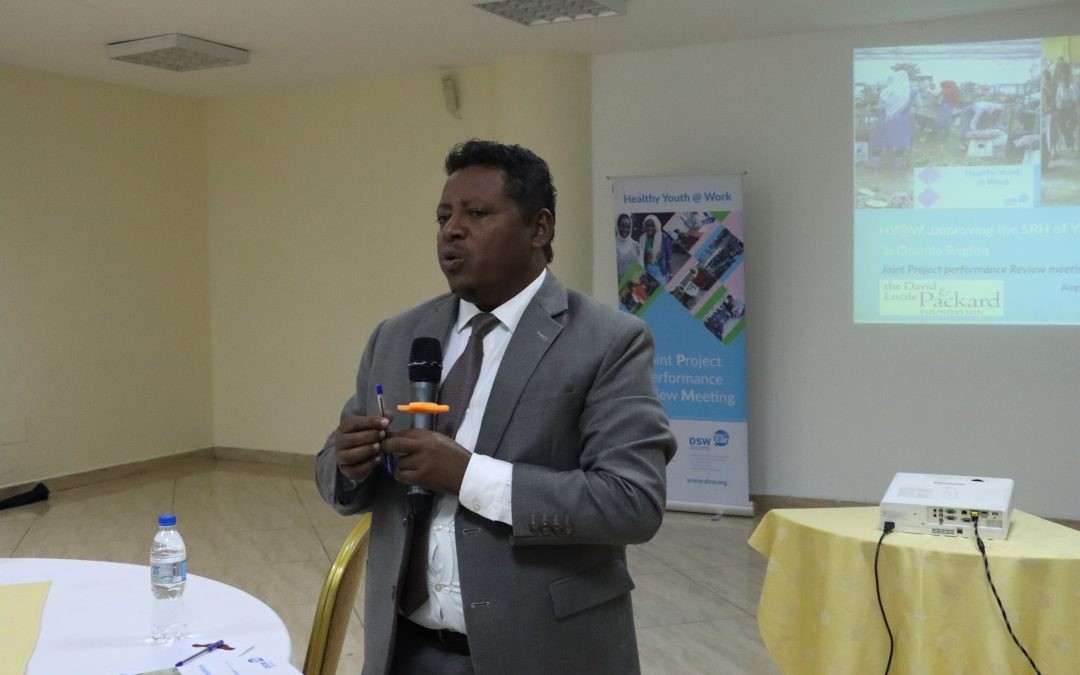Already on the final year of its second phase, the “Healthy Youth at Work” project saw a performance reviewing event with stakeholders take place on 1st August 2023 at Inter-Luxury Hotel in Addis Ababa. Fifty stakeholders representing government offices, as well as about eighteen various industries from private sector, including flower farms’ managers participated at the project performance review meeting.
DSW Ethiopia and the Oromia Regional Health Bureau presented the overall scope of tangible impacts merited by the project’s performances during the past three years.
“In an opening speech, Feyera Assefa, Country Director of DSW Ethiopia, said, “At every bi-annual meeting over the past three years we met in different venues with most of the familiar faces we see here who exhibited a sense of strong ownership in the project for jointly reviewing the progress and outcomes. Each time we met, collective lessons taken from both the positive outcomes and the challenges arose. So far, the scale up effort based on the lessons learned from the workplace intervention has materialised as DSW was able to expand its outreach over the industrial parks at Bole-Lemi, and in Hawassa. Most recently, we extended our experiences into the Adama industrial park.” As he ushered the keynote speaker to the podium, Feyera praised the commitments to the implementation of the project shown by the Oromia regional bureaus, offices and the management team of the industries in the private sector for their partnerships.
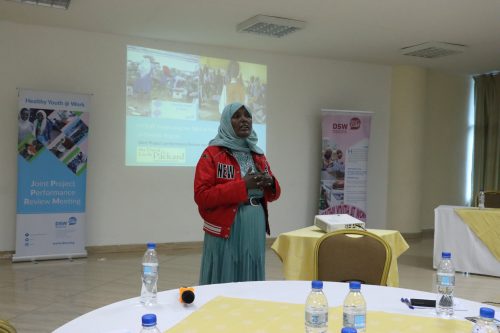
In her keynote remarks, Jemanesh Ahmed, Director of the Urban Development & Housing Bureau (UDHB) of the Oromia region, observed the timely arrival of DSW’s project previously much-overlooked intervention areas such as the flower farms and factories where so many of the youth are working and vulnerably interacting in unsafe sexual relationships and partnership.
“With urban development growing fast in Sebeta and Sendafa, industries and flower farms became flourished, underpinning the new employment opportunities for so many youth. It is in our plan and strategy to pave the path for expanding youth employment and urban agricultural activities. Our young people, most of them were female, thus rushed to seize the job opportunities out there created by the new investment in the farms and factories without prior knowledge or awareness of the sexual and reproductive health issues. Their vulnerability was obvious, until Healthy Youth at Work project came up with an intervention to prevent the public health menace at some point in time this was hardly paid attention to by any civil society organisations,” said Jemanesh.
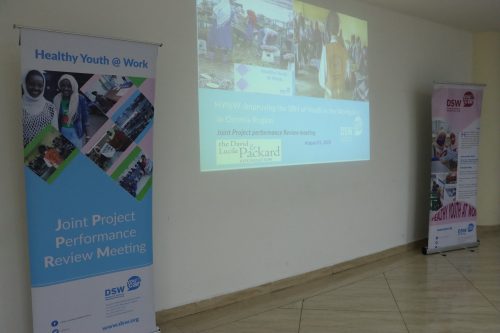
She further noted that “We at the regional bureau have long recognised and are well aware of DSW’s tangible work extended on behalf of the youth in Oromia region and we will ensure to further our strategic partnership to scale up this project in recognition to the efforts of DSW’s works. We urge DSW to document the lessons learnt and good practices from this project for impact measurement and knowledge management. We are encouraged by the outcomes of this project and will put efforts to replicate the practices elsewhere based on the lessons learned,” the Director of the Urban Development and Housing Bureau enthused in her concluding keynote speech.
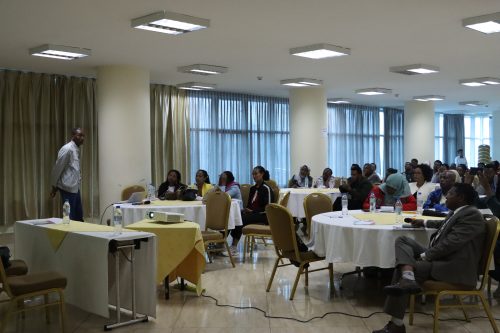
An overview of the project and key outcomes were briefed by Adugna Amenu, Project Coordinator at DSW Ethiopia, who on his part gave emphasis how the workplace intervention tailored to improve the SRH needs of working youth has also scaled up their knowledge of SRHR issues. This has evidently enhanced access to youth-friendly services, including the improvement in financial literacy of the youth at workplaces. “These outcomes were attained through the choice and informed decision of the youth who became skilled to capitalize upon the existing enabling environment for addressing the gender-based violence along with identifying their sexual and reproductive health and rights (SRHR) needs.”
Empowered by the knowledge and access to SRH service provisions gained, most youth at the workplace often seek to prioritise their health. This was witnessed by increased demands for the services based on their informed choices.
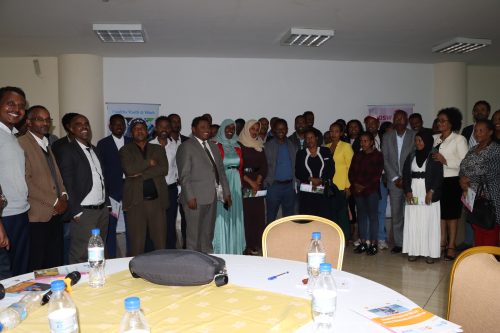
As part of one of the last activities at the joint review meeting, Efrem Regassa, the Reproductive Health Officer at the Oromia Regional Health Bureau has complemented to the healthy behaviors demonstrated by the youth at workplace. As a result, the introduction of the minimum service package at the workplaces was initiated and advocated by DSW that has gained recognition and integrated by the Federal Ministry of Health in the service provisions benefiting the working youth.
Each speaker representing the various government offices set forth their way forward that most commonly focused on the need for DSW to document the key lessons learned from the project for replication and knowledge management mechanism.
Financed and technically supported by the David & Lucile Packard Foundation, “Healthy Youth at Work (HY@W)” was an extension of the first phase launched six years ago as a pilot intervention. It was scaled up based on necessities and successes attained and implementation of its second phase has been undergoing over the past three years. Well into the nine-month bridging phase already on a consolidation, HY@W is closely monitored and scheduled for impact assessment toward the end of September 2023.
Photos: private
